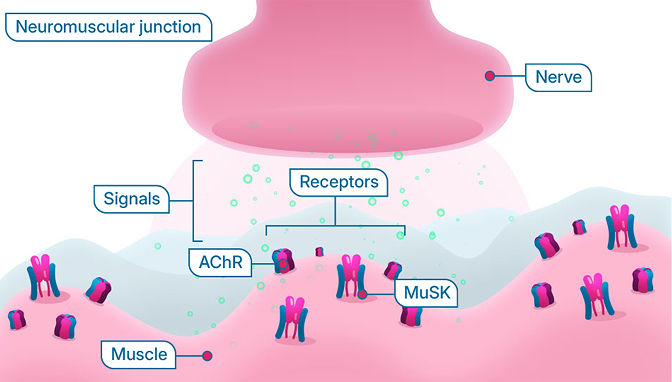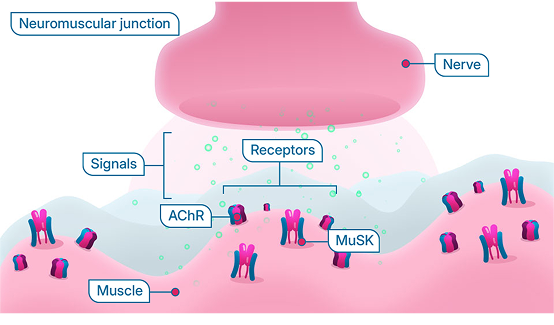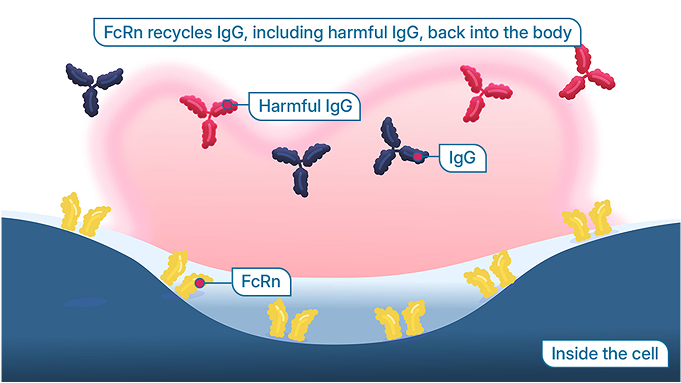Symptoms & impact on daily life
Each person experiences gMG differently.
gMG is sometimes called a “snowflake disease” because symptoms can vary from person to person.
Common symptoms include:
Muscle fatigue
Trouble breathing
Trouble swallowing
Muscle weakness in areas such as arms, hands, legs, or feet
Trouble speaking
Changes in vision
How gMG affects the body
gMG interrupts signals between your nerves and muscles.

AChR=acetylcholine receptor; MuSK=muscle-specific tyrosine kinase.
In a healthy individual, nerves send a messenger (neurotransmitter) called acetylcholine that acts as a signal for the muscle.
Acetylcholine attaches to a
When harmful IgG antibodies target these receptors, they interrupt the signal between your nerves and muscles. This makes it harder for your nerves to tell your muscles to move.

AChR=acetylcholine receptor; MuSK=muscle-specific tyrosine kinase.
What are harmful anti-AChR and anti-MuSK antibodies?
In gMG, sometimes harmful anti-AChR and anti-MuSK antibodies can be formed against the AChR and MuSK muscle receptors that are important for relaying messages from nerves to muscles.
anti-AChR
Anti-acetylcholine receptor
People with harmful antibodies that target AChR have anti-AChR antibody-positive gMG.
Found in ~80% of people with gMG
anti-MuSK
Anti-muscle-specific tyrosine kinase
People with harmful antibodies that target MuSK have anti-MuSK antibody-positive gMG.
Found in ~6% of people with gMG
Neonatal fragment crystallizable receptor (FcRn) is
a protein found naturally in your body


Normally, the purpose of IgG antibodies is to help defend your body against infection and disease that can be caused by foreign proteins such as viruses and bacteria.
FcRn extends the time IgG
antibodies are in your body. This is meant to help protect your body from those foreign proteins that can cause illness.
In gMG, the body can mistakenly
make harmful IgG antibodies—such as harmful anti-AChR and anti-MuSK
antibodies—that interfere with the signal between your nerves and muscles. FcRn can also help keep harmful IgG antibodies in your body longer. This allows them to continue to disrupt the signals between your nerves and muscles.




Get personalized support tailored
to your unique needs
Once you and your doctor have decided that IMAAVY™ is right for you,
IMAAVY withMe is here for you and your loved ones with free
personalized support when and where you may need it.
Not ready to sign up yet?
Learn more now



